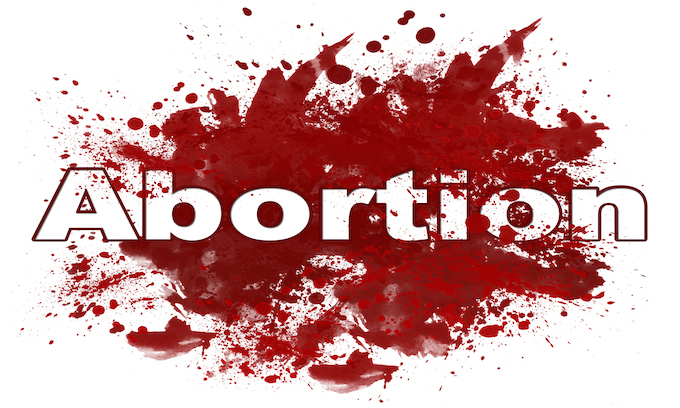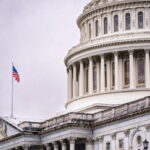As the country braces for a Supreme Court decision that could overturn Roe v. Wade, California lawmakers are speeding ahead to expand abortion care and protect providers in the Golden State to meet an expected surge in demand for help from out-of-state women.
Until recently, the rate of abortion procedures has been declining in California. But the state could be the nearest provider for up to 1.4 million women of reproductive age who could no longer have access to abortion in their home states, particularly for those who live in Arizona.
“California’s role will be very important,” said Dr. Ushma Upadhyay of UC San Francisco’s Department of Obstetrics, Gynecology & Reproductive Science. “We will signal to people across the country that California supports their reproductive rights, and we’ll help them obtain this basic health care service.”
Without more abortion providers and funding, women here could face longer wait times — and clinics could experience greater costs and stress, say providers.
State legislators are now considering a package of 13 bills to help California meet the demand. And Gov. Gavin Newsom has promised more money, pledging $125 million in the state’s upcoming budget.
These efforts focus, in general, on meeting the two greatest needs: increasing providers and decreasing costs. But they also aim to protect pregnant people and abortion providers from legal persecution, bolster security of clinics and create a web page with centralized information for anyone seeking care.
“Millions of more people are going to continue to need access to abortion. That is why it’s crucial that California continue to take steps to not just protect abortion access, but expand access,” said Brandon Richards of Planned Parenthood Affiliates of California.
It is not yet known exactly what the Supreme Court’s ruling on a new Mississippi abortion law, expected this month or in early July, will say. An early draft opinion, obtained by Politico, indicated that it would overturn Roe v. Wade, the landmark ruling nearly 50 years ago that guaranteed the constitutional right to abortion, pushing the issue of whether abortion is legal to individual states.
This would be a seismic shift in the nation’s legal landscape, because 26 U.S. states are on track to ban abortions, including 13 that will go into effect immediately. In two states adjacent to California – Nevada and Oregon — abortion rights are protected, so the decision will not force people there to leave home.
But in Arizona, on California’s southern border, the ruling could have an immediate effect, restricting most abortions after 15 weeks of pregnancy. Planned Parenthood and other providers are expanding services near the Arizona border.
UC San Francisco and other specialty care providers in the Bay Area are expected to treat out-of-state women who are suffering from complicated pregnancies in the second trimester and are suffering from a medical crisis.
Residents of places much farther from California may also choose to travel to the Golden State if they have family or friends here, or prefer the anonymity of a big state, experts say. If wait times lengthen in other states, they may be desperate for more prompt treatment.
California is already the nation’s leader in abortion access, according to a nationwide analysis by the Guttmacher Institute, a reproductive health research group. The state covers the cost for lower-income Californians on Medi-Cal, and also requires private insurance to cover the procedures. There’s no waiting period or parental consent requirement.
Anyone can seek an abortion in California for any reason if the fetus cannot survive outside the womb. Typically, that’s until the 24th week of the pregnancy. Abortion is available after 24 weeks in California if continuing the pregnancy threatens the life or health of the pregnant person.
Among likely voters in the state, 76% said they did not want Roe vs. Wade overturned, according to a poll earlier this year by the nonpartisan Public Policy Institute of California.
On Wednesday, Democratic legislative leaders introduced a bill that would amend the California Constitution to permanently enshrine abortion rights. While the Constitution has a right to privacy that has been interpreted to cover the right to an abortion, this amendment would explicitly protect the procedure. It is likely to be approved by a supermajority of Democrats in both legislative houses by the end of June, then would be placed on the Nov. 8 statewide ballot — a move that could motivate Golden State voters during this fall’s high-stakes mid-term elections.
The proposal is one of a flurry of abortion-related bills in Sacramento. Several would help boost the number of providers. One would focus on training nurse practitioners, certified nurse-midwives, and physicians’ assistants. Another would create a Reproductive Health Service Corps to recruit providers in underserved areas. And others would strive to shield clinicians from civil and criminal liability if they provide abortions to out-of-state patients, and help providers get professional liability coverage.
Other bills are focused on protecting patients, enhancing the privacy of medical records related to abortion and pregnancy and not complying with subpoenas from other states.
Also under consideration are bills that would boost funding. One helps subsidize abortion expenses; another pays for the “practical support” work, such as airfare, gas money or lodging, of community-based organizations.
Anti-abortion groups are gearing up to oppose the legislative push and are criticizing state leaders for turning California into what they call “a hub for abortion tourism” for women from out of state.
“The only thing that’s missing are tickets to Disneyland,” said Susan Arnall, vice president of Legal Affairs for the Right to Life League.
Among Californians, the demand for abortion has declined, with a 16% decrease in the rate between 2014 and 2017 at the state’s 419 facilities, the last time data was collected. But even before the leak of the draft Supreme Court opinion, Planned Parenthood was seeing an influx of 500 out-of-state patients per month seeking reproductive health care, according to Richards.Related Articles
“California is prepared to be a refuge state for women here and across this nation,” according to Assemblymember Cristina Garcia, D-Bell Gardens, chair of the California Legislative Women’s Caucus. “We will be the national beacon for reproductive justice.”
Staff Writer Harriet Blair Rowan contributed to this report.
©2022 MediaNews Group, Inc. Visit at mercurynews.com. Distributed by Tribune Content Agency, LLC.
—-
This content is published through a licensing agreement with Acquire Media using its NewsEdge technology.



















“We will signal to people across the country that California supports their reproductive rights, and we’ll help them obtain this basic health care service.” ,,,Nobody is getting in their way to their right reproduce. DUH! It’s their imagined right to take another life that sane American people of integrity want No hand or part in, definitely not their tax dollars designed for healthcare ending up funding innocent human executions and the sale of human body parts. Family planning to a Democrat is killing the very thing that makes a family. First drive out the father, then abort the child. These people are mentally ill from day one and nobody should be surprised why California is turning into a failed state and asylum for the insane. Next, they will be advertising health spas with build-in do it yourself D. & C. vacuums in the form of fruit flavored elbow sippy straws attached to the vibrating beds, and Botox needles. Their party is built on the concept of death by taxation, soon their state’s economy to follow with death by abortion.
THERE IS NOTHING in abortions, that is “Reproductive rights”…
To say that deciding to have an abortion is a ‘hard choice’ implies a debate about whether the unborn baby should live or be killed, thereby endowing it with a status of being.”
Is the right to privacy mentioned in the Constitution?
The right to privacy is not mentioned in the Constitution, but the Supreme Court has said that several of the amendments create this right.
The terms “Privacy” and “Liberty” were neve meant to give a women the right to murder her unborn baby.
“The makers of our Constitution understood the need to secure conditions favorable to the pursuit of happiness, and the protections guaranteed by this are much broader in scope, and include the right to life and an inviolate personality — the right to be left alone — the most comprehensive of rights and the right most valued by civilized men. The principle underlying the Fourth and Fifth Amendments is protection against invasions of the sanctities of a man’s home and privacies of life. This is a recognition of the significance of man’s spiritual nature, his feelings, and his intellect.”
It is my profound belief that individual freedoms and human decisions, health or otherwise, belong to the individual and are not subject to governmental control! Do I accept chemotherapy for cancer or deny the treatment? Do I decide to forgo a kidney transplant that may grant me a few more years of less-than-normal life or take the kidney that will leave another human without use of his/her healthy kidney for life? Do I dare risk taking a kidney knowing the donator may experience a kidney failure in future years and suffer because I have his/her other, good kidney? These are our decisions and never that of any government agency.
Abortion falls in that category and Congress has not the right to dictate to women what they can and cannot do pertinent to their health! It is insane to believe the United States government be given the right to dictate medical decisions to its citizens. This becomes a more grievous concept when considering one blatant fact. If we give our government control over abortion, we open the door to governmental control on any other issue presented to Congress by any group! That is an insane proposition, made more ludicrous by liberal minds seeking to have the United States working class, the taxpayers, pay for abortions of people living off the government who refuse to work, pay taxes, and help make this nation better!
It is, and always has been, a woman’s right to decide her medical path! She may seek advice from family, friends, or doctors, but the decision is hers and only hers!
Actually, the Supreme Court is making the decision, not Congress. It is their responsibility to decide if an issue follows our Constitution or not.
Too late. ‘We’ already gave our government control over abortion 50 years ago. There’s no difference in the Supreme Court deciding it then or now.
You really need to work on your arguments.
Krymson, your examples are not comparable. Kidney transplants and chemotherapy extend life, your life, they don’t end the life of another for your convenience.
In the case of pro-abortion a woman’s choice is to end a life, a life that was created by her actions but it is not her life to end. It is not a health care decision, it is a lifestyle decision. It’s inconvenient to carry her child to term so she won’t. It’s easier to just kill her child and think that decision won’t come back to haunt her later.
You should never think that a woman who will kill her own child won’t choose to end another life somewhere down the line, maybe yours. After all, life is not precious to her.
You seem very concerned about government control of your body. How did you feel about mandatory vaccinations for Covid or mandatory masks?
Exactly.. ABORTION affects more than just the woman carrying the baby.. IT AFFECTS THE BABY AND the ‘father’, who got her pregnant too…
California is looking at abortion as a way to get out of their financial mess, which THEY created.
California is also home to birth tourism. There is a huge population of people, especially from China and Russia, who go there to give birth so their child will be a citizen and they can stay.
Which is why if i had the power, i would ELIMINATE BIRTHRIGHT citizenship, unless AT LEAST ONE PARENT is already a US citizen!!